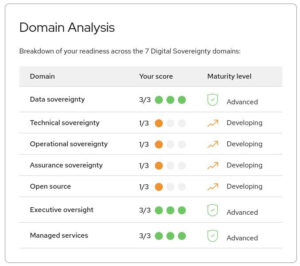FOSS Week in Review
New FCC Chairman a bad omen for net neutrality?
There might be some changes upcoming to the FCC’s position on net neutrality according to an article by Jon Brodkin posted Wednesday on Ars Technica. It seems as if the new Chairman, Tom Wheeler, wouldn’t necessarily cry “foul” if ISPs decided to take money from the likes of Hulu or Netflix for fast lane access.
“Wheeler (a former lobbyist for the cable and wireless industries) spoke positively about the [Open Internet] order but said he wouldn’t mind if Netflix has to pay for a faster lane to consumers while answering questions Monday after a policy speech at Ohio State University.
“‘I am a firm believer in the market,’ he said. ‘I think we’re also going to see a two-sided market where Netflix might say, “well, I’ll pay in order to make sure that you might receive, my subscriber receives, the best possible transmission of this movie.” I think we want to let those kinds of things evolve. We want to observe what happens from that, and we want to make decisions accordingly, but I go back to the fact that the marketplace is where these decisions ought to be made, and the functionality of a competitive marketplace dictates the degree of regulation.’
“Wheeler’s comment implies that he believes the Open Internet Order already allows such arrangements or that he wants to change it.”
Advocacy group Public Knowledge’s Vice President, Michael Weinberg, was quick to criticize the new chairman’s statement.
“ISPs should not be allowed to charge some websites or services extra just so those websites and services actually work. ISP subscribers are not hostages to be auctioned off to web services. There are all sorts of reasons for this but, just to pick one, in order for this type of ‘fast lane’ to make sense there needs to be a ‘slow lane’ that is bad enough to make someone like Netflix need to pay to get out of it. And just to pick two, this sort of pricing structure works to freeze out new innovation from companies that cannot afford to outbid incumbents.”
The latter is of special concern to us. The Internet has been a great leveling field, allowing small sites will little funding to compete with well financed sites on a more equal footing.
CEO Craig Aaron and Research Director Derek Turner of the consumer advocacy group Free Press pointed out that allowing ISPs to charge content providers for the fast lane treatment would result in a double whammy for the consumer.
“Say Netflix (which, by the way, is already paying a lot to put its content on the network where you can find it) did cut such a deal with Comcast. Netflix would likely then turn around and raise the prices you pay to cover its costs. But there’s no chance Comcast would lower your monthly bill. It would just line its own pockets. So Wheeler’s vaunted ‘two-sided market’ just means you end up paying Comcast twice.”
Yup. That’s how it seems to us too.
Safeplug offers anonymous browsing…or does it?
Since Edward Snowden ruined it for everyone by making us aware of the fact that we share the water with sharks when we surf, security has been a key word. This, of course, has been a bonanza for security vendors and right now everyone is clamoring to get on the gravy train.
This point was made Monday by Dave Jeffers on PCWorld:
“But when Snowden blew his whistle, we discovered what the Internet really was: a US-made, digital version of the Stasi–the East German secret police determined to know everything about everyone. Even if criminal hackers don’t get their hands on your private information, the government will.”
He goes on to warn of the let-the-buyer-beware aspects to security products on the market, especially in the proprietary world where inner workings are not available to peruse. He quotes Bruce Schneier, who publishes the popular site Schneier on Security, “In the cryptography world, we consider open source necessary for good security; we have for decades.”
Jeffers points out that many companies headquartered abroad are now planning to move their data off of U.S. based servers:
“Considering the massive computing power available to the NSA for cracking encryption, some companies feel that the only secure option is to get out of the United States. San Francisco-based data storage provider Pogoplug is doing just that, moving cabinets and cables across the Atlantic at the request of a major client, Paris-based Bouygues Telecom. Pogoplug CEO Daniel Putterman told AP’s [Martha] Mendoza that “They want French law to apply, not U.S. law.” They’re planning a similar move for an Israeli client.”
Indeed, Pogoplug has come out with a security device of their own that targets worried consumers, which we learned about from the folks at LinuxBSDos.com. Called Safeplug, the device uses Tor to allow users to surf anonymously. Because it works through the user’s router, it promises protection for every computer at the location where it’s enabled.
There’s just one problem, as the unnamed writer at LinuxBSDos pointed out:
“I like devices like this, but not those that I know very little about. Other than the fact that it uses Tor, there is no other substantial information that the manufacturer has released about Safeplug. No hardware specification, not even on the device’s marketing page, or on an official blog post.
“Not even a picture of the rear of the device has been made public. Or its dimensions. It’s like a black box, and I hate those things. For something that retails for US $49 ($58 plus S&H), I think more information needs to be made available.”
 Yup, we agree. We wouldn’t buy one. How do we know there’s no built in back door? We also don’t like the fact that after installing the device you have to connect with the company website to activate it. Indeed, the Pogoplug people need to offer some more transparency before we’d be willing to trust this thing.
Yup, we agree. We wouldn’t buy one. How do we know there’s no built in back door? We also don’t like the fact that after installing the device you have to connect with the company website to activate it. Indeed, the Pogoplug people need to offer some more transparency before we’d be willing to trust this thing.
Number of Linux distros passes 2K
On Sunday, Softpedia told the world they’re now listing a total of 2,000 Linux distros on their site, a number that continues to rise.
“Yes, it is true that, among them, there are a lot of entries that are not maintained anymore (but still available for download), as life is tough and good Linux distributions disappear overnight, just like it happened recently with the SolusOS operating system.
“It’s also true that many entries are specially crafted editions of major Linux distributions aimed at a specific target, such as a desktop environment or a community (gaming, audio, video, graphics, office, etc.). But hey, flavors count too, and they’re very important!”
As of this writing, the number of distros listed on Softpedia is 2,021.
Are research universities trolls?
On Tuesday, Grant Gross wrote on PCWorld about efforts underway to convince the House to do a partial rewrite on the Innovation Act, the bill that targets patent trolls, in part because it might prove costly to America’s research universities.
“‘The Innovation Act is good ‘for people who don’t like patents and would like them all to go away,’ said Gary Lauder, a venture capitalist. Researchers at universities often invent products that are manufactured by private companies, and the bill, as written, is ‘going to disrupt this system,’ added John Vaughn, executive vice president of the Association of American Universities, during a press conference Tuesday.”
Not so fast, says Mike Masnick writing on Techdirt. He points out that since universities began patenting the fruits of their research in 1980 with the passage of Bayh-Dole Act, they’ve mainly lost money at it. As a result, many of their patents have been used to feed the trolls.
“…With only a handful of exceptions (Stanford, MIT, etc.) tech transfer offices have cost more than they’ve ever made… while serving to lock up important research, limit collaboration and generally cost the university money that could have gone elsewhere. Oh, and then the trolls came in. We’ve discussed plenty of times in the past how Intellectual Ventures is the world’s largest patent troll, but what few people pay attention to is how it got its patents. That’s the nasty secret. The crew at IV saw all the problems with tech transfer offices and saw an opportunity: IV went around from university to university and offered to buy patents in bulk. Desperate tech transfer offices, needing to show some revenue coming in gobbled up the offers, and voila, a giant massive patent troll with tens of thousands of patents was born — often based on research that was funded by taxpayer dollars.”
Our two cents? The bill needs to be passed as soon as possible. If it turns out it needs tweaking, that can be done later.
Don’t forget to check out our daily FOSS news feed with links to all the breaking stories every weekday on Facebook, Twitter and Google+. Have a great weekend. Watch out for the ice if you live in the eastern part of the U.S. Until next week, may the FOSS be with you…

















Reforming patents is a waste of time, a failing holding action trying to support something that has never worked.
Abolish it.
2,021?
Cheers!!!